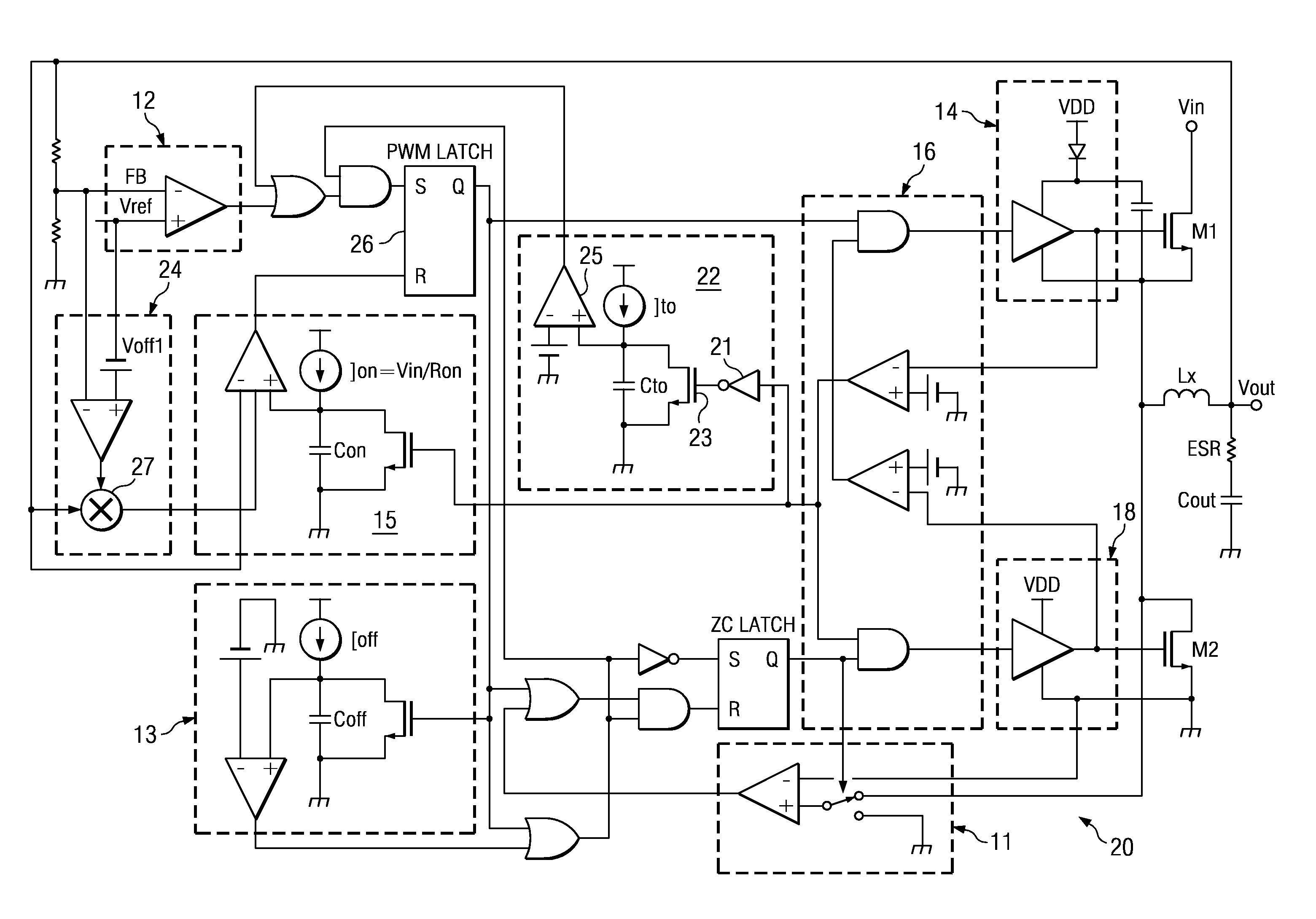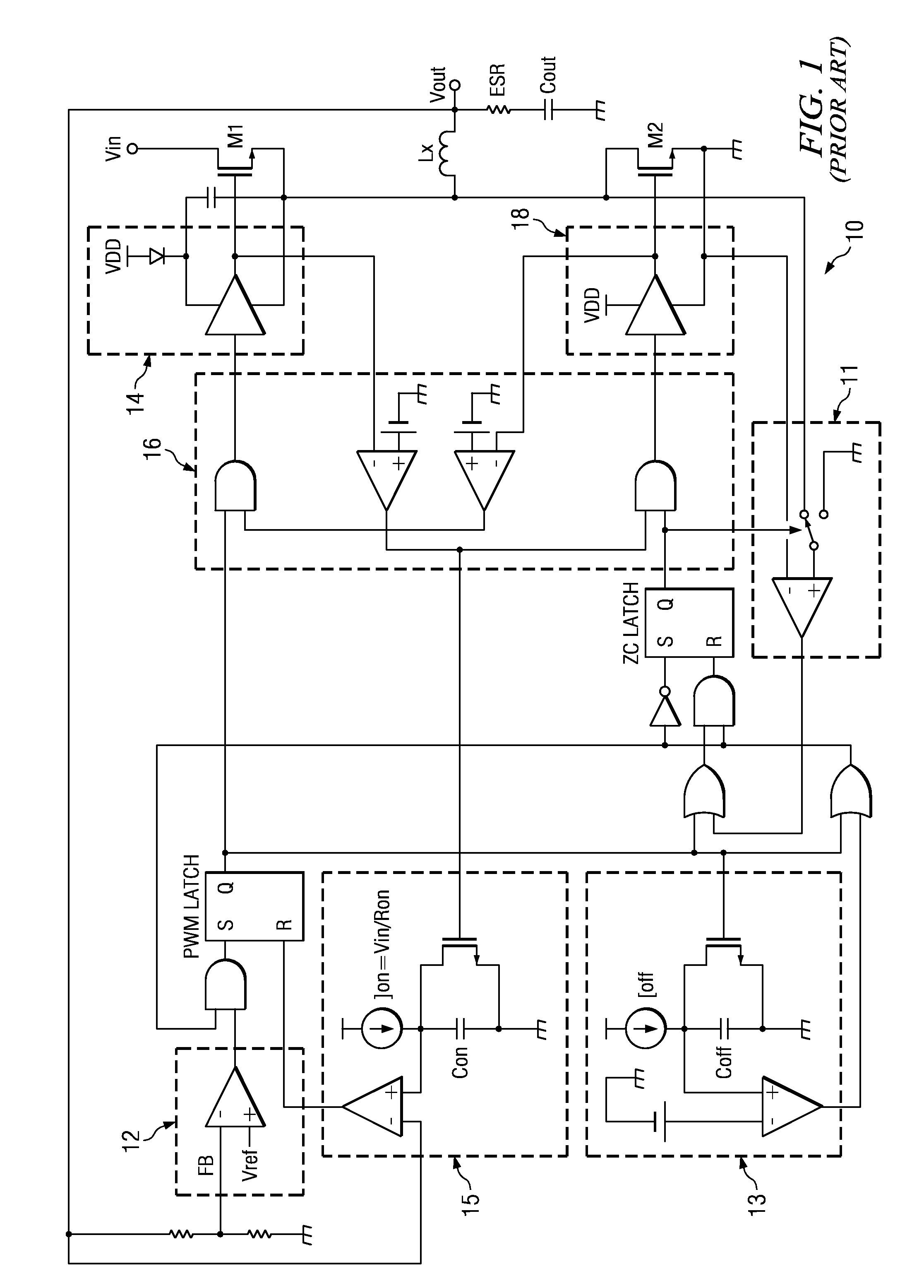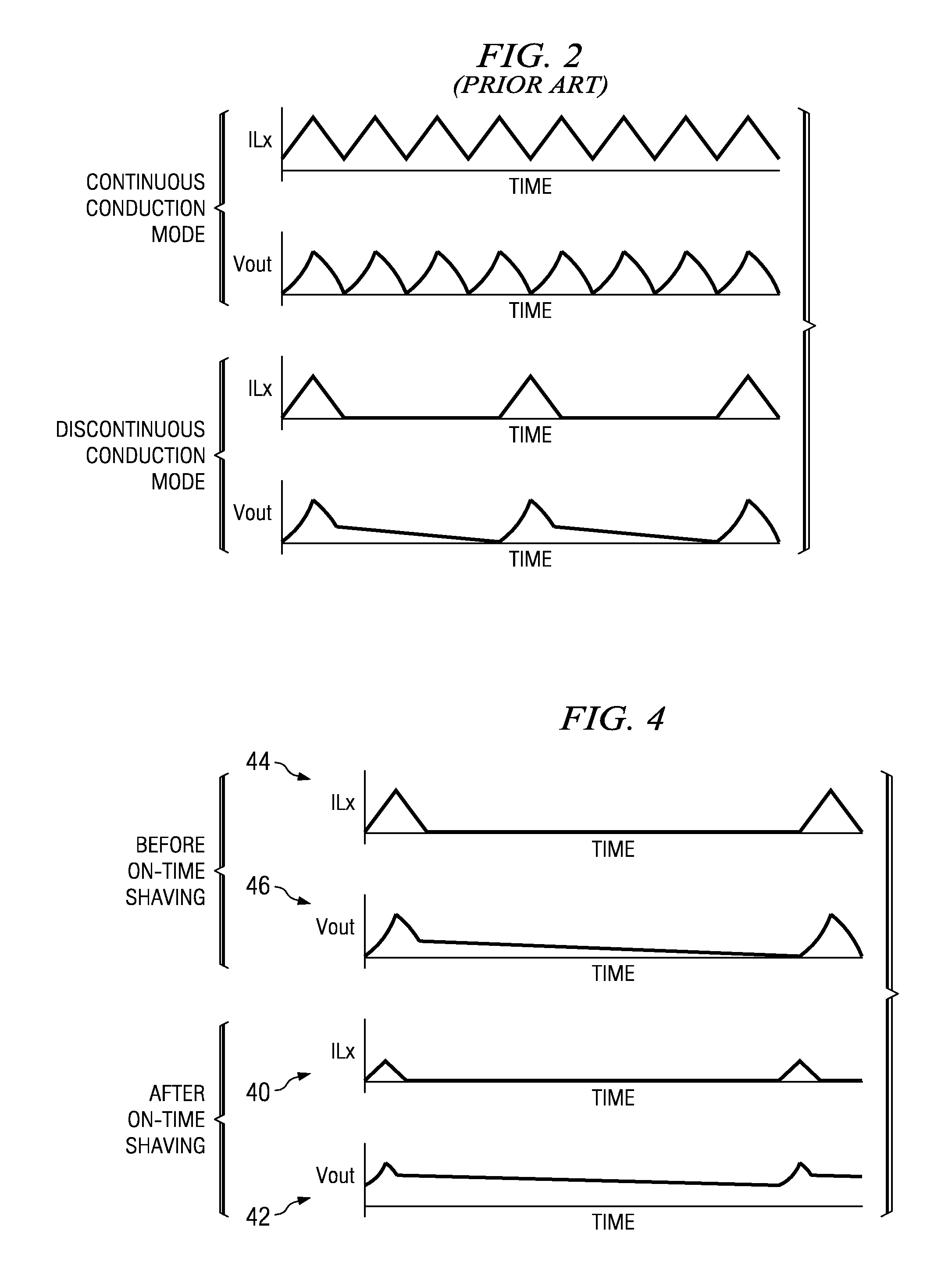High efficiency power converter operating free of an audible frequency range
a power converter and frequency range technology, applied in the direction of electric variable regulation, process and machine control, instruments, etc., can solve the problems of high undesirable audible buzzing or ringing of components, and achieve the effect of avoiding the discharging of output inductors and avoiding reducing the efficiency of power converters
- Summary
- Abstract
- Description
- Claims
- Application Information
AI Technical Summary
Benefits of technology
Problems solved by technology
Method used
Image
Examples
Embodiment Construction
[0049]The entire contents of U.S. Application No. 60 / 632,921 is hereby incorporated herein by reference.
[0050]A preferred embodiment of the present invention provides a system and technique for avoiding operation at a switching frequency in an audible frequency range. Challenges relating to the regulation of output current and voltage are handled with innovative approaches that maintain a high operational efficiency even at light load currents.
[0051]Referring now to FIG. 3, a circuit block diagram 20 illustrates an embodiment of the power converter according to a preferred embodiment of the present invention. Circuit 20 includes a number of elements that are substantially similar to the conventional DC-DC power converter of FIG. 1. For example, circuit 20 includes zero crossing comparator 11, loop comparator 12, minimum off-time timer 13, on-time timer 15, cross conduction control or controller 16 and high and low side drivers 14 and 18, respectively. In addition, according to a pre...
PUM
 Login to View More
Login to View More Abstract
Description
Claims
Application Information
 Login to View More
Login to View More - R&D
- Intellectual Property
- Life Sciences
- Materials
- Tech Scout
- Unparalleled Data Quality
- Higher Quality Content
- 60% Fewer Hallucinations
Browse by: Latest US Patents, China's latest patents, Technical Efficacy Thesaurus, Application Domain, Technology Topic, Popular Technical Reports.
© 2025 PatSnap. All rights reserved.Legal|Privacy policy|Modern Slavery Act Transparency Statement|Sitemap|About US| Contact US: help@patsnap.com



